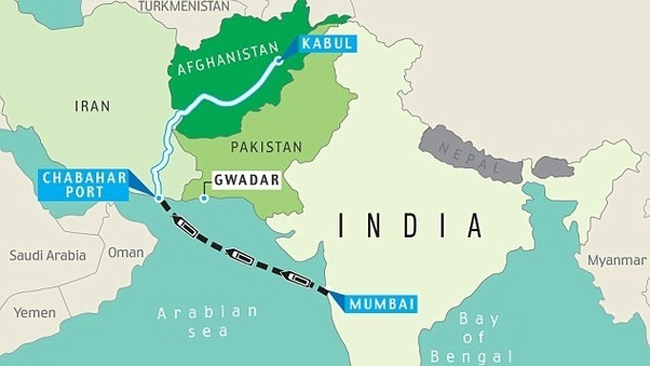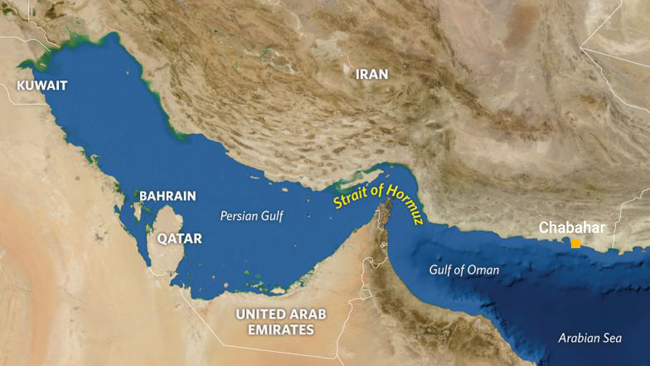Chabahar Port in the southern waters of Sistan-Baluchestan Province handled 1.78 million tons of goods during the first half of the current Iranian year (March 21-Sept. 22), registering a 29% rise in throughput compared with the similar period of last year, according to a local official.
“The loading and unloading of essential goods [wheat, rice and other grains] rose by 9% year-on-year, such that growth stood at 6.5% for oil and petrochemicals, and 48.2% for non-oil goods,” Qasem Askarinasab, director general of Sistan-Baluchestan Ports and Maritime Organization, was quoted as saying by the news portal of the Ministry of Roads and Urban Development.
Since India began operations at Shahid Beheshti terminal of Chabahar Port in late 2018, it has handled bulk cargo transshipments from Australia, Bangladesh, Brazil, Germany, Russia and the UAE.
Experts say the throughput can be significantly enhanced if the port is linked to the rail network.
India took up the development of Shahid Beheshti terminal under a tripartite agreement signed with Iran and Afghanistan in May 2016. Afghanistan is no longer part of the arrangements since the takeover of the country by the Taliban last year, although the port has benefited from a US waiver on sanctions imposed on Iran.

India pledged to invest $85 million in the terminal and has so far supplied cranes and other equipment worth $24 million. There is a need to expedite the supply of more equipment such as heavy gantry cranes for transferring cargo from ships to land.
India and Iran are close to striking a long-term agreement for operations at the strategic Chabahar Port, with the matter held up only by differences on a clause related to arbitration, Hindustan Times reported recently, citing people familiar with the matter.
The long-term agreement, valid for 10 years and open to automatic extension, is meant to replace an initial pact that covered India’s operations at Shahid Beheshti terminal and has been renewed on an annual basis.
The move comes at a time when China has been showing growing interest in making investments in ports and other coastal infrastructure in Iran, and the Iranian side has been pressing New Delhi to step up the development of Shahid Beheshti terminal, which is operated by the state-run India Ports Global Limited.

The long-term agreement figured in discussions during the Indian Shipping and Waterways Minister Sarbananda Sonowal’s visit to Iran last month, especially his meeting with Iran’s Roads Minister Rostam Qasemi.
The issue holding up the long-term agreement is not major and relates only to jurisdiction for arbitration of differences on any issue. Under Iran’s Constitution, such arbitration cannot be referred to foreign courts, and a proposal under the agreement would require a constitutional amendment, which would be difficult.
Both sides, however, are hopeful of the speedy resolution of this matter as legal and technical experts are working on it.
At the same time, the Iranian side has been pushing India to speed up its operations at Chabahar Port, including the completion of the 700-km Chabahar-Zahedan railroad.
Less than 200 km of this crucial rail link remain to be completed and in the face of hesitation to deal with a construction company with links to the US-sanctioned Islamic Revolutionary Guards Corps, Tehran has suggested a contract can be finalized by the Indian side with some other entity.
During Sonowal’s visit, the two countries decided to form a joint technical committee for the smooth functioning of the port. India remains “fully committed to develop Chabahar Port to realize the vision” outlined during Indian Prime Minister Narendra Modi’s visit to Iran in 2016, Sonowal said at the time.
India is set to organize a meeting of a joint working group on Chabahar with Central Asian states in October to promote the use of the port. Measures are also being taken to integrate the port with the International North-South Transportation Corridor.